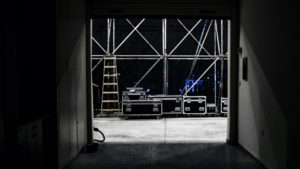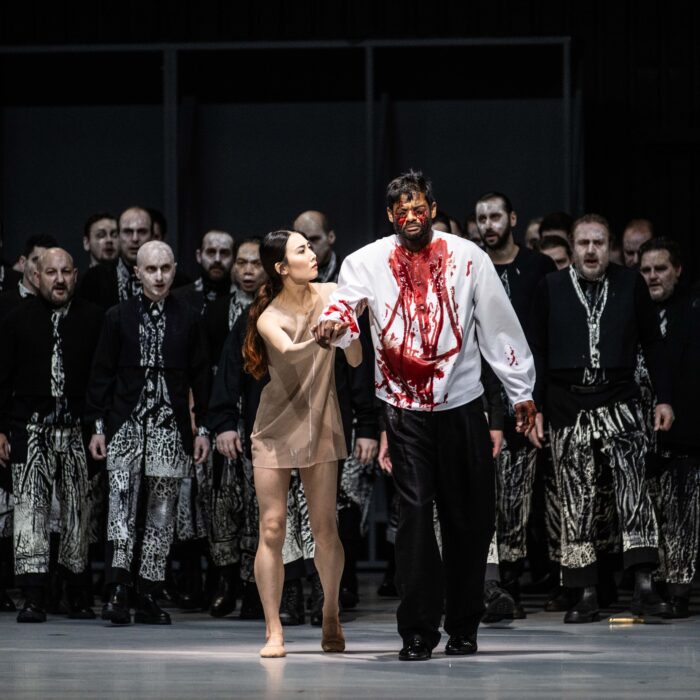
Criticism on Fridays: IATSE vs the Met
The Quietest Negotiations Are Probably the Ones With the Highest Stakes
By Polina Lyapustina(Photo: Adi Goldstein)
Every Friday, Polina Lyapustina delivers a short essay on some of the most essential topics in the industry with the intent of establishing a dialogue about the opera world and its future.
Another week passed, and the negotiations that the Met and International Alliance of Theatrical Stage Employees started with a supposed June 14 deadline to start the Met 2021–22 season on time still brought no results.
But from the beginning, its been clear that parties’ expectations did not coincide.
From the perspective of Gelb’s administration, IATSE members who were locked out since December 2020 and saw no mercy or simple respect from their employer since then, would be more accommodating when the negotiations have finally started. They likely figured that a hungry dog will run at any bone thrown their way.
So the Met, expectedly, came with its “final” offer (certainly not one with 30 percent cuts proposal, but with cuts anyway larger than those even for high-rate soloists from AGMA). But that was just a starting point, with the obvious possibility of reduction. Of course, IATSE declined it fully.
The Union remembered 2014 when Gelb had already required the cuts to “save the Met” and at that time, IATSE did its best to negotiate the lowest cuts for its members, who at the moment faced the large outsourcing of their work. And so, the Union expected to get the lowest cuts again, thinking that there might be some consideration for the harsh experience its members endured during this past year.
It may even sound funny though it’s not — the desperation of workers made both parties believe they would win with almost no blood. But the weeks passed and absolutely no result was achieved.
For the first time, during this Met vs. Unions war, the workers used their knowledge and skills, so the Union was able to count and present a program of cost reduction for productions and general operations, thus minimizing the pay cuts for workers.
Of course, the Met refused.
About two weeks ago, the Met asked for technical help during the negotiations, and IATSE, who, I guess, expected some concessions, sent a small team to assess the stage and machinery. The workers found a theater in really bad condition (mold in the pit, for example) and so they came up with a 6-week plan to be ready to start tech rehearsals in August. That would make it possible to open “Fire” on September 27. The plan was supposed to start on June 21, but the negotiations got stuck and nothing of what could be done in the first two weeks of this certainly ambitious recovery plan has yet to start. And it doesn’t seem like the stagehands will now return until they get the final deal.
But since that moment, management has wasted negotiation time, firmly pushing IATSE to accept their deal, since with this particular union they have already shown that they can just lock people out with no responsibility. At the same time, during the last week, the administration started shifting the responsibility for the season-opening to workers, voicing a new deadline — July 7 — for when the season will be canceled if IATSE does not sign the agreement.
But while this threat doesn’t sound very serious, the Union is really interested in an early resolution of the conflict since it is likely to start experiencing problems with funds soon. The lockout of workers (during which the Met hasn’t contributed anything at all, including basic insurance) and relatively small (compared to the orchestra and singers) public attention equals less support from the private donors surely out of funds.
Most unfair of all is that the Met knows about this problem and can now simply wait to win without giving up anything at all. The Met’s board and management hold all the cards with the threat of a canceled season. And if IATSE continues to hold out, they have another card they can play — guilt. They can simply play the blame game and claim that the IATSE workers, who are simply in a battle for their own survival, are at fault for hundreds of Met employees losing their jobs for another year.
The total control, perfectly calculated timing, and options the theatre has in this situation (when IATSE can only stand for their rights in long marathon-like sessions) may force the union, that managed to balance all of the Met’s previous proposals successfully and then was simply removed from the game this year, to lose a significant part of its members’ earnings at the Met.
The only thing Peter Gelb and his lawyers haven’t yet understood is how much those desperate workers had already given up to do these jobs at the Met. And to be clear, they were never the best, most comfortable, or highest-paid jobs, even during the Met’s best years. And still, they managed. But if after all the challenges they faced over the years and the disrespect they experienced during the pandemic, they will be denied fair and reasonable pay for their work, why would they stay? If the Met’s experienced and highly qualified workers are going to make a lot less money, they can surely do that somewhere where the schedule allows them to breathe once in a while between September and May.
And to be clear, this last phrase is not my own thought on the matter. It’s a general feeling that has repeatedly surfaced throughout several conversations with workers. Of course, anyone, even those who aren’t part of the Met, can understand that.
Except for Peter Gelb, of course. And his board, hiding in the shadows, pulling all his strings.
UPD: after the marathon session on Friday and Saturday (July 2-3), The Metropolitan Opera and IATSE Local One have reached an agreement that will allow workers to return in preparation for the 2021-22 season. Neither side has released an official announcement.


